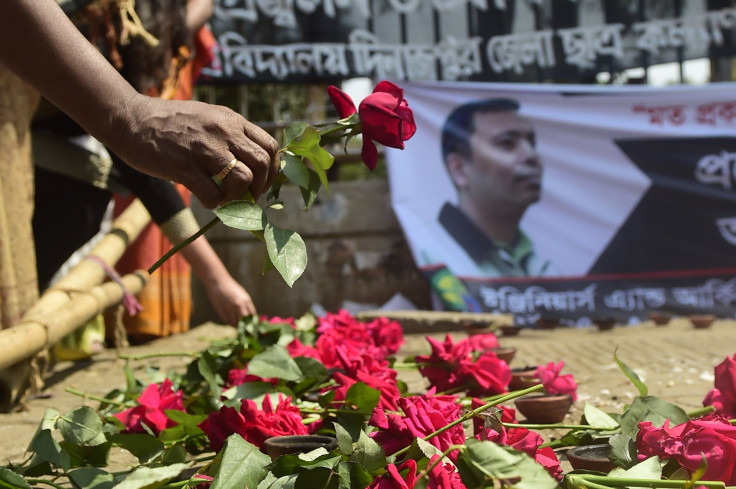Who Is Rezaul Karim Siddique? Bangladeshi Rajshahi University’s Professor Hacked To Death

A university professor in northwestern Bangladesh was hacked to death Saturday, local police said. The pattern of the attack is believed to be similar to recent killings of secular activists and atheist bloggers by Islamist militants in the Muslim-majority country.
The deceased was identified as 58-year-old A.F.M. Rezaul Karim Siddique, an English professor at Rajshahi University. Two or three assailants rode up on a motorcycle slitting Siddique’s throat and hacking him to death while the professor was on his way to the state-run university, police official Golam Sackline said.
“We are investigating the killing,” Sackline said. The pattern of the attack was similar to other recent killings by Islamist militants, he added.
No group has claimed responsibility for the attack. The motive behind the killing also has not been established. At least three other professors at Rajshahi University have reportedly been killed in recent years purportedly by Islamist militants.
Earlier this month, Nazimuddin Samad, a 28-year-old Bangladeshi law student, was killed by at least four assailants in capital Dhaka after condemning Islamism on Facebook. Samad's Facebook page reportedly identified him as a member of the Shahbag movement, which seeks punishment for Bangladeshis who fought for Pakistan during the 1971 war for independence.
The South Asian country has witnessed the killings of at least four atheist bloggers and a secular publisher since 2013. Police have arrested members of the outlawed Ansarullah Bangla Team group, which is connected to al Qaeda, for the murders, though no one has yet been prosecuted.
The group’s actions are viewed as a threat to freedom of speech in the country and a form of retaliation against the 2013 protests that called for harsher punishments for former Islamist leaders who were convicted of war crimes.
© Copyright IBTimes 2024. All rights reserved.












